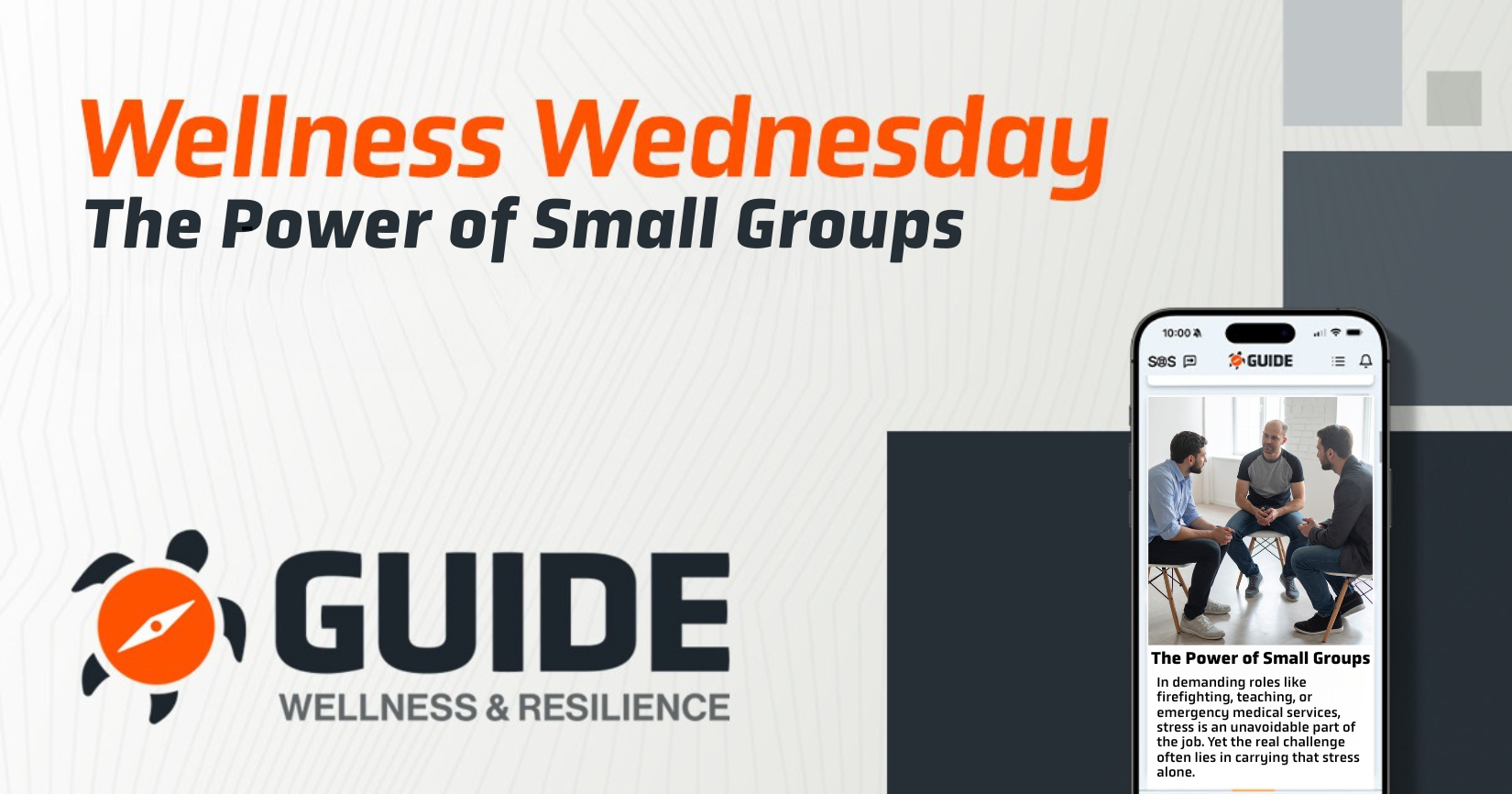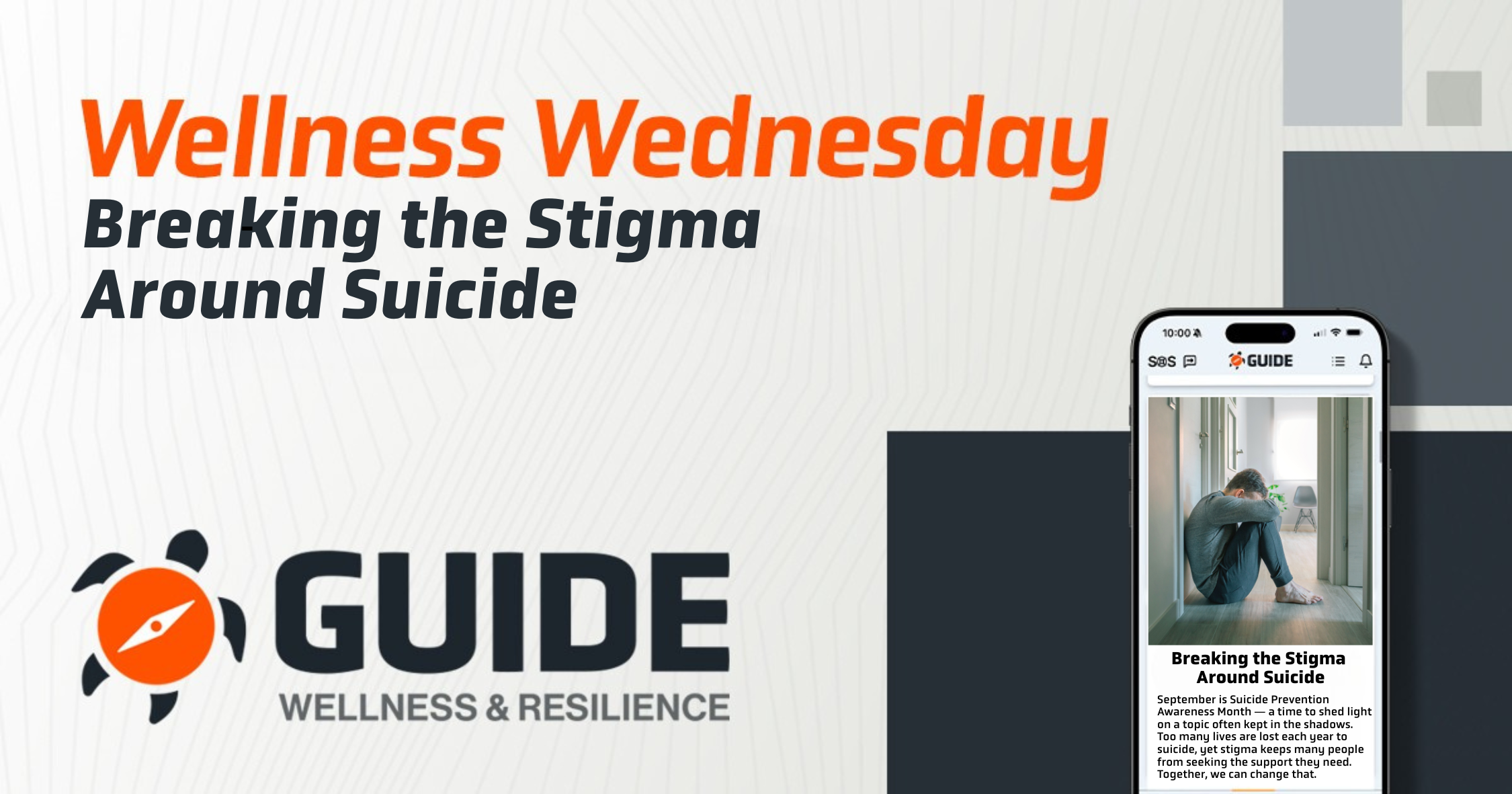The holiday season is upon us. Society tells us this is a time to embrace peace, joy and happiness. In reality, the holidays can invoke feelings of stress, burnout, anxiety and even loneliness for many people. From family obligations and expectations to the added financial pressure of buying gifts, the demands of the season can take a toll on our mental and emotional wellbeing.
Amplified Impact on First Responders, Frontline Workers
For first responders and frontline workers, the period between Thanksgiving and New Year’s Day is particularly taxing. Long hours, shifts on holidays that keep you away from family, an uptick in tragic and high-stress calls and a disrespectful public drain you mentally and emotionally. The stress of the job can make it difficult to lean into the joy of the season. In this article, we will discuss strategies to help you manage stress and anxiety so that you can find peace in the hectic days ahead.
Set Healthy Boundaries
Nothing brings out family dysfunction like the holidays. And as if family dynamics aren’t stressful enough, you must balance work with a long to-do list, social and family obligations and unrealistic expectations. No wonder the holidays have you feeling flooded and overwhelmed. You can protect your emotional wellness and prevent burnout by setting and sticking to a few rules of thumb:
- Know your limits.
- Communicate your plans openly with family and friends.
- Prepare to speak up for yourself in a respectful but firm manner.
- Don’t be afraid to say no.
- Practice affirmations – short, uplifting statements that you say to yourself to encourage positive thinking and build confidence.
Setting and maintaining boundaries will lead to a more peaceful holiday season for you and your loved ones.
Create a Budget and Stick to It
Many of us have a tendency to throw our budgets out the window during the holidays only to regret it later. Before you make that first purchase, create a budget that includes gifts, food and other expected expenses, and remain disciplined with your spending. Next, make a list of gifts you want to buy that fits within that budget, shop sales and resist impulse purchases. Even though it may be tempting, try to avoid dipping into your emergency fund. When you are feeling anxious about your holiday budget or the need to purchase gifts, try a mindfulness practice. Following these steps will reduce the added budgetary stress of the holiday season and keep your financial health strong.
Plan Ahead, but Adopt a Flexible Mindset
We can find ourselves pulled in so many different directions during the holidays. If you have a family with young kids, schedules can become overwhelming. To reduce conflict, keep a family calendar of all important dates and activities so you can prepare and make sure you are on the same page with other family members. But also remember the tip above – set boundaries – and do not feel compelled to attend every event. Which brings us to the importance of adopting a flexible mindset. Plans change, events occur that are outside of your control or you may feel tapped out. Remember, your wellness is more important than attending every event and meeting everyone else’s expectations.
Invest in Yourself
While it is called “the most wonderful time of the year,” the holidays can trigger feelings of loneliness for some. Maybe you’ve recently lost someone close to you, are separated from loved ones by distance, the mental and emotional toll of work is weighing you down or your shift falls on Thanksgiving or Christmas or another holiday you celebrate. Whatever the reason, these moments of isolation and sadness can be difficult to navigate. You can combat this heaviness and build resilience by taking care of yourself: get outside, prioritize exercise, eat well, meditate, adopt micro-self care practices, abstain from social media, read a book, listen to music that brings you joy, devote time to a favorite hobby and don’t be afraid to reach out to people you know who care about you.
Practice Gratitude
Cultivating gratitude can have a profound impact on your mood and wellbeing by bringing into focus the little things to be thankful for in the midst of your day-to-day grind. During the holidays, it’s easy to get swept up in the hustle and bustle and become irritable and short-tempered. Take a moment each day to reflect on the positives in your life, whether it’s a warm cup of coffee or a good night’s sleep. Take it a step further and write down a list each day in a gratitude journal. When you feel stressed, anxious or sad, reading through past journal entries can steer you back to a place of positivity and peace.
Follow these steps to begin a gratitude practice:
- Sit or lie down comfortably, close your eyes and take a few deep breaths.
- Think of three things from your day or life that you’re grateful for.
- As you bring each one to mind, take a moment to truly feel appreciation for it.
- Take a deep breath for each item on your gratitude list, letting the feeling of gratitude spread through your body.
More Tools for Navigating Holiday Stress and Beyond
The holidays are a particularly stressful time for those who serve and protect the public. During this season they see the best and worst of humanity, and it can be difficult to reconcile the emotional roller coaster of joy and tragedy.
With the right tools and support, making small changes to our daily routines can have a significant impact on overall wellness, and by extension, job performance.
Become empowered to take control of your wellbeing through the Guide App, designed to help first responders, veterans, and others who face high-stress situations to maintain a positive mindset and improve their mental health. Click here to learn more about courses offered by the Guide App like setting boundaries, finances, mindfulness, practicing gratitude and more.




